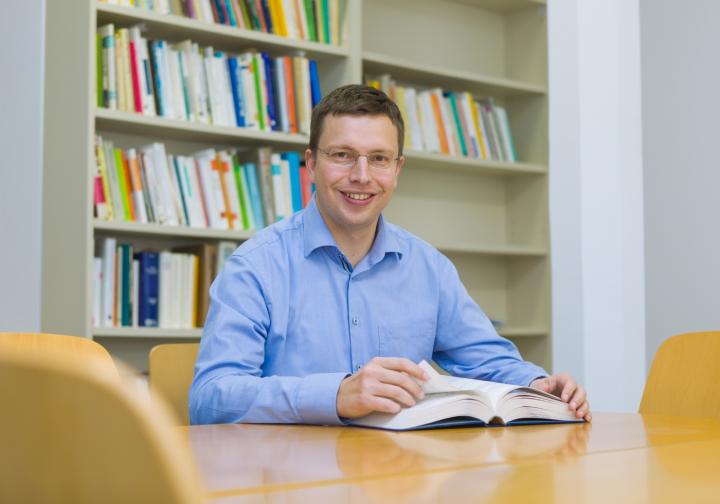Researchers surveyed people before and during the crisis – Participants perceived threats and challenges

Credit: Swen Reichhold; Leipzig University, SUK
In addition to the medical and economic crisis, the COVID-19 pandemic has also affected many people’s subjective well-being. This is the result of a long-term study by psychologists from Leipzig University and Saint Louis University with 979 people from all over Germany. The study examined changes in subjective well-being between December 2019 and May 2020. This study, led by organizational psychologists Hannes Zacher and Cort W. Rudolph, found that between March and May 2020 – in the early stage of the pandemic – average life satisfaction and the experience of positive feelings decreased significantly, on average around 0.2 points each on a seven-point scale. Surprisingly, there was also a slight decrease in the experience of negative feelings such as anger and fear during this phase. The researchers have just published the results of their study in the renowned scientific journal American Psychologist.
In the investigation, subjective well-being was defined and measured as high levels of life satisfaction and the frequent experience of positive feelings such as joy, as well as the rare experience of negative feelings such as anger or fear. The personal assessment of the pandemic, for example as a threat or a challenge, as well as various functional and dysfunctional coping strategies such as problem solving or alcohol consumption were examined as factors influencing subjective well-being during the early stage of the COVID-19 pandemic.
While the scientists found no evidence for changes in subjective well-being when surveying people in the period before the COVID-19 pandemic, between December 2019 and March 2020, this changed significantly in the weeks afterwards due to the crisis. People who rated the pandemic as a challenge and the consequences of the pandemic as controllable generally showed a higher level of subjective well-being. In addition, people reported higher subjective well-being when they actively solved problems, focused on the positive aspects of the crisis and received social support. On the other hand, those who perceived the crisis as a threat, denied it, or blamed themselves for the consequences of the crisis felt less well. The same was true for people who tried to cope with the crisis with alcohol or drugs.
“Psychologists can take advantage of the results by helping to improve their clients’ general skills in making constructive assessments in times of crisis and using successful coping strategies,” says Zacher. The Volkswagen Foundation is funding the continuation of the long-term study over the next 18 months with €50,000. The study will examine how the COVID-19 pandemic affects changes in the world of work, such as acceptance of the home office, virtual teamwork, and job insecurity, as well as the development of physical and mental health.
###
Media Contact
Professor Hannes Zacher
[email protected]
Original Source
http://dx.
Related Journal Article
http://dx.




